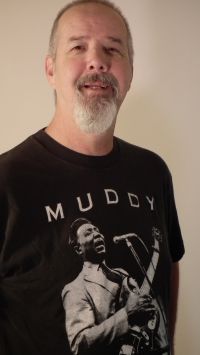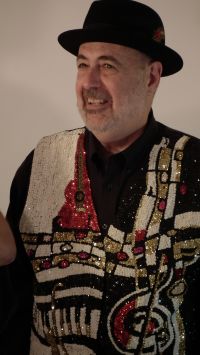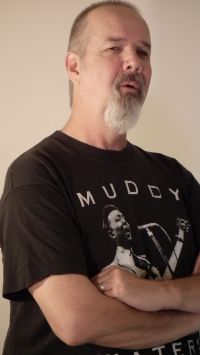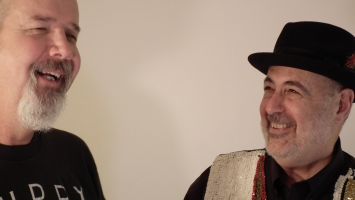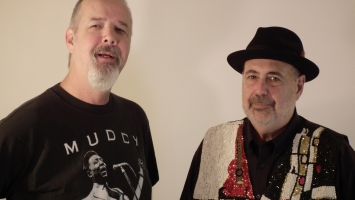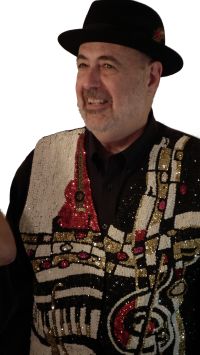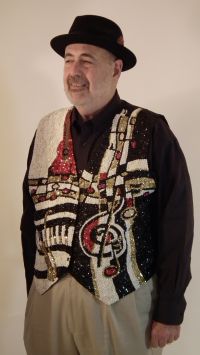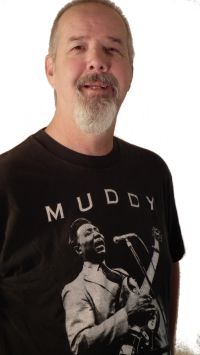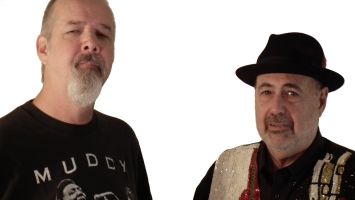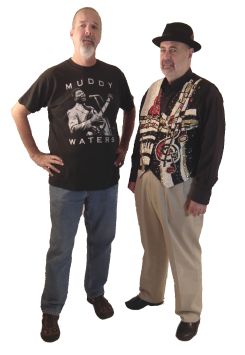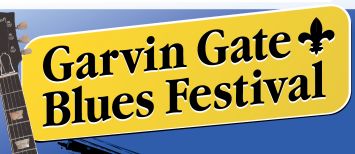social bookmarking tools:
 |
|
| Available RSS Feeds |
|---|
 - Top Picks - Top Picks |
 - Today's Music - Today's Music |
 - Editor's Blog - Editor's Blog
|
 - Articles - Articles
|
Add Louisville Music News' RSS Feed to Your Yahoo!
|
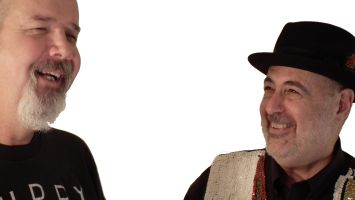
The Resurrection of the Garvin Gate Blues Festival
The Garvin Gate neighborhood is a mostly quiet area. Nestled in old Louisville, the neighborhood is considered by many to be a rough place. True, it's not uncommon to be asked for money if you walk down Oak Street, or to see an abandoned storefront. Like so many neighborhoods, it's a work in progress.
Garvin Gate is roughly defined as the 1200 block of 4thStreet, 6th Street and Garvin Place between the 500 block of Oak and Ormsby Avenue. It's also a tight knit area where neighbors look out for each other, a place where things like organized neighborhood yard sales still take place.
And it's a place where it's Metro Government Councilman David James works tirelessly to help the area move forward, by initiating projects such as the Oak Street Task Force, which works toward keeping the area safe, and creating more business and real estate development.
Another pet project of James' is the Garvin Gate Blues Festival, a free event that happens every year and is set this year for Oct. 12 and 13. The festival has been around since 1988, and like the neighborhood for which it is named, has had its challenges – but always ultimately prevails.
"I congratulate the volunteer leadership team of the event for the countless hours put forth to make this festival what it is today.” – David James
“When it started, nobody had any concept of what it was going to become,” said Howard Rosenberg, the festival committee’s chairman. “The neighborhood was just looking for something to bring them together.”
Due to limited space and funds, the inaugural Garvin Gate festival was a one-day event with local bands performing. And it rained. According to the festival website, it was estimated that about 500 people showed up.
But over the years, the festival grew in scope and popularity. “The neighborhood really never had any money,” Rosenberg said. “They were scraping things together.”
"When it started, nobody had any concept of what it was going to become," said Howard Rosenberg, the festival committee's chairman. "The neighborhood was just looking for something to bring them together."
Due to limited space and funds, the inaugural Garvin Gate festival was a one-day event with local bands performing. And it rained. According to the festival website, it was estimated that about 500 people showed up.
But over the years, the festival grew in scope and popularity. "The neighborhood really never had any money," Rosenberg said. "They were scraping things together."
And now, Louisville has a legit blues festival that not only is still free but draws quite a bit more than 500 people each year. Rosenberg and Mike Suttles, who books the artists for Garvin Gate, said this year they expect up to 10,000 people to make their way to Old Louisville for the two-day event featuring not only local but national talent.
THE ROAD TO THE BLUES
Even after that initial festival got rained on, Garvin Gate expanded to a two-day event in 1989. The Kentuckiana Blues Society got involved. An estimated 10,000 people turned out in beautiful weather, and one of the headliners, Eddy Clearwater, did an after-festival jam at the Rudyard Kipling.
However, year three was when the festival truly arrived. Scott Mullins of WFPK – and host of the station's "Saturday Night Blues Party" – became music coordinator and helped bring in several high-level acts, including Fenton Robinson, James "Thunderbird" Davis and the Jelly Roll Kings. That year, an estimated 20,000 packed the streets around Oak and Garvin Place for a two-day blues orgy.
But due to a reported rift between Mullins and the Kentuckiana Blues Society, the event and its music coordinator parted ways, so Rosenberg – who was involved with the Blues Society and was a lover of the festival – decided to take over.
"The neighborhood tried to do it itself and it just wasn't a good situation," Rosenberg said. "Then I realized we didn't know anything about [booking] music."
Rosenberg was then introduced to Suttles, and the music played on.
"I maintain that if the music wasn't good, you could have a free festival and nobody would show up," Rosenberg said.
Apparently, the music Suttles brought in was very good; the event continued to grow in popularity, and by 1995 was Louisville's 11thlargest event, drawing nearly 40,000 people over three days, featuring headlining acts recruited from Chicago.
In 1996, a second stage was added, and performers such as Deborah Coleman, Chubby Carrier and Jimmy Dawkins rocked the stage. One of the weekend's most powerful moments was when an ailing Jim Rosen, who would pass away about a year-and-a-half later, sat in on mouth harp with Dawkins.
Then Rosenberg moved out of town. The Garvin Gate Neighborhood Association, at least in terms of the festival, seemed to run out of gas. This small-neighborhood phenomenon fell into new hands, was renamed the Louisville Blues Festival and moved downtown to Theater Square for three years, from 1997-99.
And then it died.
"We had a bigger stage and more money," Suttles said, "but what led to the downfall of it was that that they charged admission. We had decent crowds but we lost the feeling of the festival."
The beauty of having a free neighborhood festival, Suttles suggested, is that it truly belongs to the neighborhood. No fences. No security guards standing sentry to keep people out. No admission charge.
"It's the most eclectic crowd you'll ever see," he said of Garvin Gate's natural audience. "From homeless people to neighborhood people, white, black, everything. To me that's what makes the festival special."
Suttles said the festival went into a partnership with WFPK during the last couple of years, and he became a spectator. For whatever reason, the new iteration of the festival just didn't work. The last one was in 1999, and attendance was way down.
"We think the last time we did it in the neighborhood, we had 25,000 people," a wistful Rosenberg said. "I didn't look at the crowd 'til we went up on stage for the last set, and it was frightening."
RESURRECTION
The next seven or so years went by with no Garvin Gate Blues Festival, no Louisville Blues Festival, and seemingly no chance for either to exist again.
And then, sometime in 2005, Rosenberg moved back to Louisville. In fact, he moved back to the Garvin Gate neighborhood.
"I was actually president of the Garvin Gate Neighborhood Association," Rosenberg said. "I was friends with [late Metro Councilman] George Unseld; I told him, 'I'm going to come down and talk to you about the blues festival.'"
He also contacted Suttles, and another friend named Chris Bryant about getting involved. They were in.
"I went into George's office, and he said, 'This is gonna hurt, but I'm going to give you this much money,'" Rosenberg recalled. Lee Jones, owner of Oak Street Hardware, got involved and started recruiting sponsors.
On a tight budget, Garvin Gate Blues Festival was revived in 2007, with Chicago guitarists Lurrie Bell and Jimmy Burns headlining the two-night event, and a Saturday night tribute to Jim Rosen that reunited his band da Mudcats with Sue O'Neill. Sonny Sitgraves, a local drummer who played with a number of Chicago blues bands, was honored with the Kentuckiana Blues Society's Sylvester Weaver Award.
Just like that, the festival was back. And so it has remained – and it continues to pick up steam. Much of that goes back to James picking up the torch where Unseld left off.
"Councilman David James has gone above and beyond," Rosenberg said.
In addition, Four Roses bourbon became a title sponsor last year, and the list of sponsors grows, from the St. James Court Association to the South Fourth Street Association to Falls City Beer to literally dozens of local businesses and individuals. Even Kentucky State Representative Reginald Meeks is listed as a sponsor.
"They all realize it's a cultural event, not just a music festival," Rosenberg said. "It has just continued to grow."
"A lot of smaller investors are doing it just for the love of it," Suttles said. He relates the story of running into an old friend in the crowd at last year's festival. That old friend owns A.L. Ball Moving and Storage.
"He is now a sponsor," Suttles said.
A friend of Suttles' wife named Pam Sasse asked about investing in the festival: "I said, 'We'd like to do a small acoustic stage for between main stage sets. If you do it, we'll name it the Pam Sasse stage."
If you go this year, be sure to check out the Pam Sasse stage between main stage sets.
"There are a number of people who are sincerely avid about supporting this festival," Suttles said.
"I take money out of my pocket," Rosenberg said. "Mike does, too. We just believe in it. I don't know music that well, but I think the blues scene suffered when the festival went away."
"I think it is the epitome of blues festivals in town," Suttles added. "I have had bands get mad because I had to turn them away. We always have a national headliner; this year, of the 12 bands, four are from out of town, so it's also an opportunity for people to see different blues bands."
'SOMETHING SPECIAL'
But it's the atmosphere that still sells the festival, they both agree.
Rosenberg explains that Four Roses got involved because Dan Gardiner, a regional sales manager for the distillery came down to the festival.
"I told him, 'Just come down; I can't explain this to you'," Rosenberg said. "He came down and said, 'This is incredible. We're in it in a big way.' He couldn't believe what was going on – he just stood there in awe."
And since it's free, nothing is fenced off – there are no boundaries. It truly belongs to the neighborhood.
"If we ever started charging," Rosenberg said, "that would be the end of it for me."
"You'd have to fence it off," Suttles agreed. "It would lose its charm."
They expect another special event this year, with headliners Sugar Ray and the Bluetones (Friday) and Nora Jean Wallace (Saturday), along with the return of O'Neil with her band SMOBLUES, the Predators, Lamont Gillespie and 100 Proof, da Mudcats, the KingBees and many more.
One aspect about the Garvin Gate festival both Rosenberg and Suttles love is it's so open and friendly – as in, the musicians often hang around and blend in with the audience. If you want to walk up to your favorite act and say hello, nobody is going to stop you at Garvin Gate.
"Because it's such a small festival, security is not such that people can't approach the band members," Rosenberg said.
"It's a rush for me to hang out with these folks," Suttles said, "and they're the nicest people you'd ever want to meet. They're just great folks. The atmosphere of it … it just takes you away; it's something very special."
The Garvin Gate Blues Festival takes place Friday, Oct. 11, and Saturday, Oct. 12. Friday hours are 6:30 p.m.-11:15 p.m.; Saturday hours are 2 p.m.-11:15 p.m. For a full band lineup and more information, visit garvingatebluesfestival.com.

